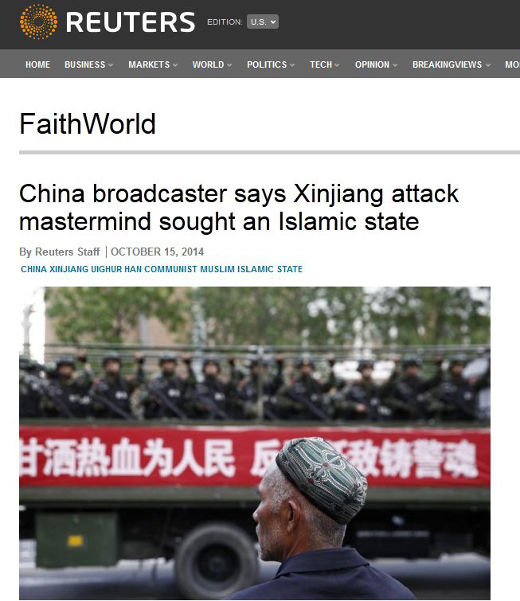Religion in a communist country like China is much more regulated than most people realize. The central government in Beijing has been weary of religion being used to question their authority and create discord in its various far flung regions. Xinjiang, the home of the Muslim Uighurs is one such (vast) region in the North-West of China. The Chinese authorities are openly fighting their own “war on terrorism” with open police action and propaganda/information warfare directed at foreign and domestic entities. They have used the rise of ISIS/ISIL as a rallying cry to root out Islamic terrorism in Xinjiang, claiming that hundreds of ethnic Uighurs have traveled to the middle-east to wage jihad for the Islamic Caliphate. Justine Drennan, writing for the CFR’s Foreign Policy magazine, looks at the Chinese policies and their potential consequences to its domestic security situation.

How China deals with its native Muslims will impact its security
“The general consensus, according to Georgetown professor James Millward, is that radicalized Uighur expats, who mostly seem to be based in Pakistan rather than Iraq and Syria, haven’t provided any operational support for recent violence in China, but rather just propaganda. And any who are fighting with Middle Eastern jihadi groups don’t seem to be rising very high in their ranks, said Raffaello Pantucci, an analyst at London’s Royal United Services Institute.
China, however, has been quick to label moderate Uighurs who speak out as radicals. Last year a Xinjiang court sentenced Uighur professor Ilham Tohti to life in prison on charges of “separatism,” for running a website that discussed Uighur experiences in the region. The United States condemned Tohti’s sentence, with Secretary of State John Kerry warning that silencing moderate voices “can only make tensions worse.” (Foreign Policy)
